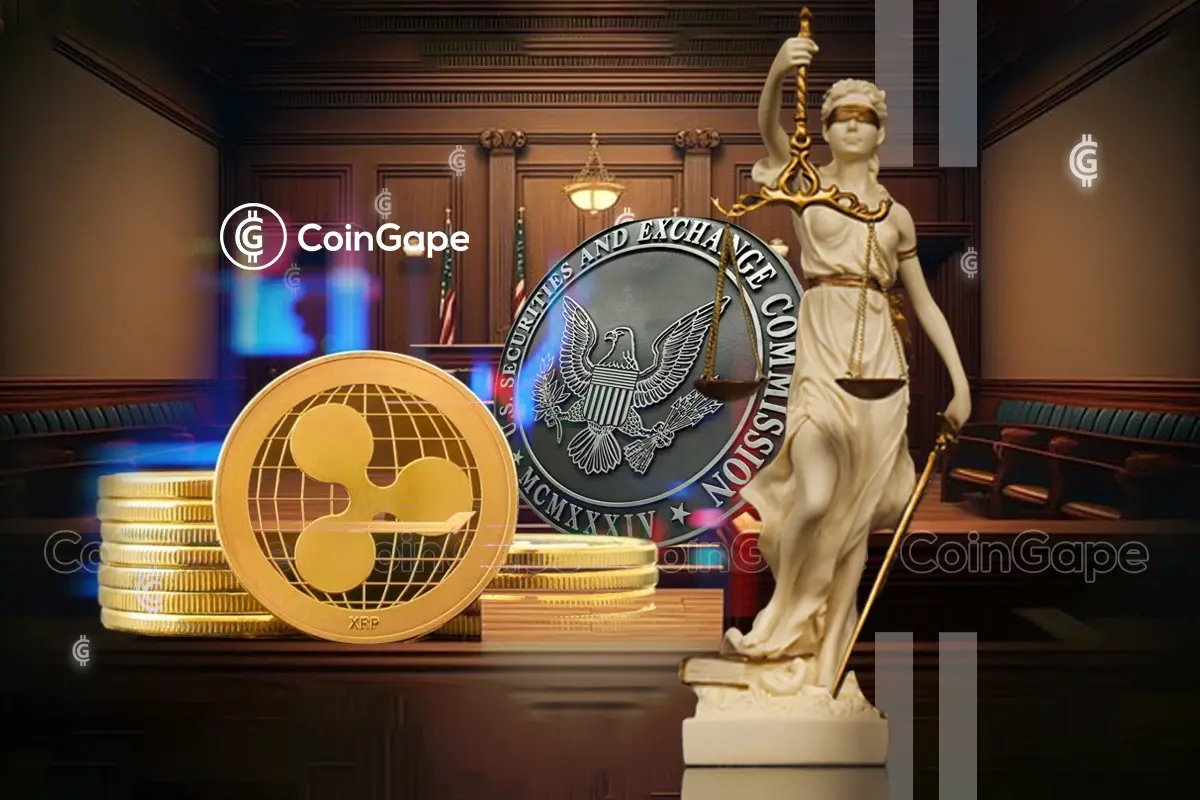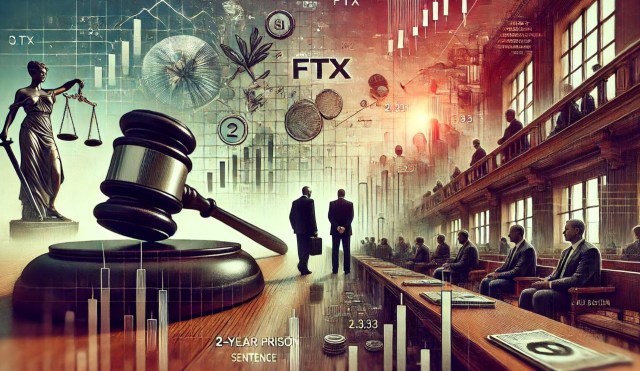Ripple ongoing legal battle with the SEC is nearing a pivotal moment, FTX has begun repaying $16 billion to creditors, South Korea is rethinking its stance on crypto ETFs, and Solana has introduced groundbreaking quantum-resistant security. These developments underscore the sector's resilience, innovation, and regulatory evolution as it continues to shape the future of finance.
1. Ripple-SEC Lawsuit Nearing Conclusion
The long-running XRP-SEC lawsuit is approaching a critical deadline. In July 2023, Judge Analisa Torres ruled that XRP, Ripple's cryptocurrency, was not a security when sold to retail investors, though it was deemed a security in institutional sales. The SEC must decide by January 15, 2025, whether to appeal this decision or request an extension. Meanwhile, SEC Chair Gary Gensler’s anticipated departure adds uncertainty to the agency’s direction. Pro-XRP attorney Jeremy Hogan predicts a resolution as early as spring or summer 2025, with significant implications for the crypto industry.
This lawsuit has become a landmark case for cryptocurrency regulation. The dual ruling on XRP—security in institutional sales but not retail sales—provides clarity while raising questions about broader enforcement policies. Ripple’s partial victory has been celebrated by the crypto community as a step towards fairer regulatory standards. However, the SEC's potential appeal could prolong uncertainty for XRP holders and the market.
Gensler's likely departure may signal a shift in the SEC's crypto stance. New leadership might adopt a more collaborative approach, emphasizing clarity over litigation. The lawsuit’s outcome will be pivotal in shaping U.S. crypto regulations and influencing how other nations approach blockchain technology.
Impact
A final resolution could lead to increased adoption of XRP and bolster investor confidence. Conversely, prolonged litigation may deter institutional investments. The outcome may also prompt Congress to prioritize comprehensive crypto legislation, addressing inconsistencies highlighted by this case.

2. FTX Initiates $16 Billion Repayment
FTX, the infamous cryptocurrency exchange, has commenced its $16 billion repayment process. Approved in October 2024, this plan aims to return 98% of customer losses, with smaller claims prioritized initially. The company, under CEO John J. Ray III, has recovered approximately $14.7-$16.5 billion to fund the repayments. This milestone is expected to restore trust in the crypto ecosystem after the significant damage caused by FTX's collapse in 2022.
The repayment process marks a turning point for FTX and the broader crypto sector. The company’s ability to recover significant funds and prioritize smaller creditors demonstrates progress in addressing the fallout from one of the industry’s largest scandals. By returning funds to users, FTX is setting a precedent for accountability, which could improve trust in crypto exchanges.
This development may also signal a shift in regulatory attitudes. Authorities may intensify scrutiny of exchanges to prevent similar collapses. Investors, too, are likely to demand greater transparency and custodial safeguards. However, questions remain about how recovered funds will impact market dynamics if reinvested.
Impact
The potential reinvestment of recovered funds into major cryptocurrencies could lead to increased demand, potentially boosting prices of assets like Bitcoin and Ethereum. Additionally, FTX's actions may encourage other troubled platforms to expedite customer repayments, promoting a culture of restitution and accountability.

3. South Korea to Reevaluate Crypto ETFs
South Korea’s Financial Services Commission (FSC) has announced plans to reevaluate its ban on spot cryptocurrency exchange-traded funds (ETFs) in response to global trends. Following the U.S. approval of spot Bitcoin ETFs, South Korea is exploring ways to permit institutional access to crypto markets. The FSC is also investigating market dominance by local exchange Upbit, as part of efforts to ensure fair competition.
The FSC’s decision to reconsider spot crypto ETFs reflects a significant policy shift. Historically cautious, South Korea has been slow to embrace crypto innovations due to concerns about market volatility. The move suggests a growing recognition of the sector's legitimacy, driven by international developments like the U.S.’s acceptance of spot Bitcoin ETFs.
Allowing ETFs could increase accessibility for retail and institutional investors, fostering growth in South Korea’s crypto market. At the same time, FSC’s investigation into Upbit’s dominance underscores the regulator's commitment to market fairness. Ensuring competitive conditions is essential as the market matures and attracts more participants.
Impact
Approval of crypto ETFs could lead to a surge in investment, as ETFs are often seen as safer, regulated entry points. Additionally, this may prompt neighboring nations to reconsider their crypto policies, accelerating global adoption. If the FSC permits institutional trading, it could significantly expand South Korea’s market liquidity.

4. Solana Introduces Quantum-Resistant Security
Solana developers have unveiled the "Solana Winternitz Vault," a quantum-resistant security feature. The system uses hash-based cryptographic signatures, generating new keys for every transaction to protect user funds from potential quantum computer attacks. However, this feature is optional, requiring users to store their assets in specialized vaults to benefit from enhanced security.
The introduction of the Winternitz Vault underscores Solana’s forward-looking approach to emerging threats. Quantum computing, while not an immediate danger, poses a long-term challenge to blockchain security. By preemptively addressing this issue, Solana positions itself as a leader in blockchain resilience.
The optional nature of this feature, however, raises concerns about user adoption. Many users may overlook or misunderstand the importance of quantum resistance, limiting the feature's impact. Educational efforts will be crucial in encouraging users to transition to these vaults. Solana’s innovation also sets a benchmark for other blockchains to explore quantum-resistant solutions, potentially sparking a wave of similar advancements.
Impact
The vault’s adoption could bolster Solana’s reputation as a secure and innovative platform, attracting developers and investors. Long-term, the move could drive industry-wide upgrades, ensuring that blockchain technology remains robust against evolving computational threats.

Key Takeaways
Ripple-SEC Lawsuit
The Ripple lawsuit, a significant legal battle, has the potential to conclude by mid-2025. The resolution of this case could set a major precedent for how cryptocurrencies are regulated in the United States. With the SEC's deadline looming and the possible departure of SEC Chair Gary Gensler, the case is a turning point in clarifying the distinction between securities and cryptocurrencies. If Ripple secures a favorable outcome, it could lead to a surge in confidence for XRP and further adoption in both retail and institutional markets. Additionally, the decision may push lawmakers to prioritize comprehensive crypto regulations, offering a clearer framework for the industry to operate within.
FTX Repayments
FTX’s $16 billion repayment plan marks a significant step toward rebuilding trust in the crypto industry following one of its most high-profile collapses. By addressing claims and returning up to 98% of customer losses, FTX demonstrates accountability and progress. This repayment could also have a notable effect on market dynamics as investors regain their funds. Many creditors are expected to reinvest these recovered amounts into cryptocurrencies like Bitcoin and Ethereum, potentially driving demand and market prices higher. FTX’s initiative sets a benchmark for ethical recovery practices in the industry and serves as a reminder of the importance of regulatory oversight and transparent operations in preventing future collapses.
South Korea's Crypto ETFs
South Korea’s decision to reevaluate its ban on spot cryptocurrency ETFs marks a pivotal moment in its approach to the digital asset market. By reconsidering these investment tools, which offer a regulated way to gain exposure to cryptocurrencies, the country aligns itself with global trends like the approval of spot Bitcoin ETFs in the U.S. This could attract more institutional and retail participation in South Korea’s crypto market. Furthermore, the FSC’s concurrent review of institutional crypto trading rules and market concentration reflects a broader commitment to fostering a competitive and fair trading environment. These developments may trigger a ripple effect, encouraging other countries in the region to modernize their crypto policies and adopt similar forward-looking measures.
Solana's Quantum Resistance
Solana’s introduction of the "Winternitz Vault" represents a proactive approach to the future of blockchain security. The optional quantum-resistant feature offers protection against potential quantum computer attacks by using hash-based cryptographic signatures that regenerate keys with every transaction. While quantum computing remains a distant threat, Solana’s innovation demonstrates its dedication to staying ahead of emerging technological risks. By addressing this challenge early, Solana positions itself as a leader in blockchain security and innovation. Educating users about this feature will be critical to its widespread adoption, as most users may not yet grasp the importance of quantum resistance. If adopted widely, this technology could set a standard for blockchain resilience and inspire similar advancements across the industry.

